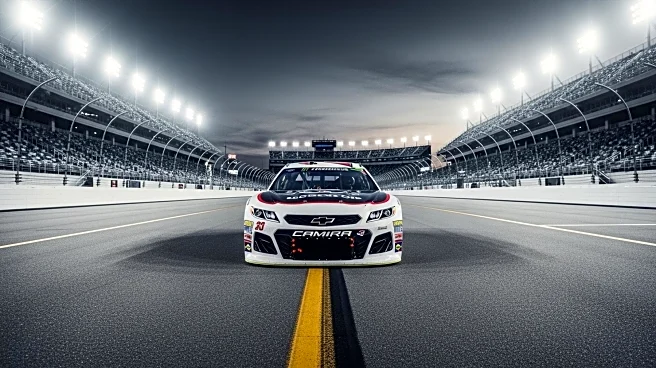What is the story about?
What's Happening?
Denny Hamlin, a prominent NASCAR driver, is navigating a unique challenge as he competes for the NASCAR Cup championship while simultaneously managing his responsibilities as a co-owner of 23XI Racing. Hamlin, who has been with Joe Gibbs Racing since 2005, co-founded 23XI Racing with Michael Jordan in 2021. This dual role has led to complex situations, such as the recent race at Kansas Speedway where Hamlin and 23XI's Bubba Wallace were contenders for the win. Hamlin's aggressive driving led to Wallace being pushed out of the lead, resulting in Chase Elliott winning the race. Despite the conflict, Hamlin remains focused on his long-term goals for 23XI Racing while continuing to compete for Joe Gibbs Racing.
Why It's Important?
The situation highlights the intricate dynamics of sports management and competition, particularly in NASCAR where team ownership and driving can intersect. Hamlin's dual role presents challenges in balancing competitive interests and team success. His actions have implications for both his personal career and the future of 23XI Racing, which aims to establish itself as a leading team in NASCAR. The incident at Kansas Speedway underscores the potential conflicts that can arise when a driver is also a team owner, affecting playoff outcomes and team morale. Hamlin's ability to manage these roles effectively could influence the strategic direction and success of 23XI Racing.
What's Next?
As the NASCAR playoffs continue, Hamlin remains in contention for the championship, with upcoming races providing further opportunities to navigate his dual responsibilities. The incident with Wallace may prompt discussions within 23XI Racing about strategies to avoid similar conflicts in the future. Hamlin's focus will likely be on achieving a balance between his competitive drive and his commitment to the success of 23XI Racing. The team's performance in the remaining races will be crucial in determining its standing and future prospects in NASCAR.
Beyond the Headlines
Hamlin's situation raises broader questions about the ethics and challenges of managing dual roles in sports. The potential for conflicts of interest and the impact on team dynamics are significant considerations for athletes who take on ownership roles. This scenario may lead to discussions within the sports industry about best practices for managing such roles and ensuring fair competition. Hamlin's experience could serve as a case study for other athletes considering similar paths.















